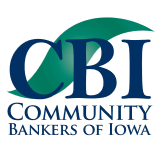| by Charlotte Eby - Managing Director of Government Affairs, LS2group View the Iowa Legislative Bill Tracker Overview/Major Events Iowa presidential caucuses under fire after results delayed for days Results of Iowa’s first-in-the-nation presidential caucuses were marred Monday night with delays and technical errors, with no definitive winner declared after months of intense campaigning. The caucuses came under a harsh national spotlight when networks that had come to Iowa to broadcast results had no winner to report on caucus night. One news outlet described the night as an “epic meltdown.” By Thursday morning, Democrats Pete Buttigieg and Bernie Sanders were locked in a dead heat as results trickled in from the last precincts. The Iowa Democratic Party, which administers the caucuses, blamed the delays on a faulty phone app that precincts were supposed to use to report results. Instead, many of the local officials chose to report their results by phone, jamming phone lines for hours. None of the large field of candidates got the type of media bounce a caucus winner typically enjoys. Soon after the caucuses were over, candidates and their campaigns already were headed to New Hampshire, which holds its presidential primary on Feb. 11. |
| Iowa’s top Republicans, including Gov. Kim Reynolds and Senators Chuck Grassley and Joni Ernst, came to the defense of the Iowa’s bi-partisan caucuses, releasing a joint statement the next morning. The political parties have worked in tandem for many decades to host the Iowa caucuses. The group noted the process did not suffer because of a delay in knowing final results. “Iowans and all Americans should know we have complete confidence that every last vote will be counted and every last voice will be heard,” their statement said. Bills aimed at vaccination practices considered in Iowa House With a global pandemic growing by the day in China and around the world, the debate on vaccinations to prevent the spread of disease was a hot topic at the Statehouse this week. House subcommittees considered a pair of vaccination bills Wednesday. One would allow pharmacists to administer additional types of vaccines to children. The other bill, HF2139, would require schools to inform parents they could seek a religious exemption from immunizing their children. Parents who disagree with vaccination mandates were at the meetings advocating for freedom of choice, warning of potential side effects and adverse reactions from immunizations. Republicans on the subcommittee advanced HF2139, but said they would want to make some changes to clarify schools’ roles. Lawmakers held off on advancing HSB 583, which would allow pharmacists to provide point of care testing for influenza and strep throat and to administer a specific list of vaccines to children 6 and older. Rep. John Forbes, an Urbandale Democrat and pharmacist, spoke in favor of the measure. He noted that pharmacy graduates are coming out of school trained in administering vaccines and that they already routinely give flu shots. Republicans on the panel said they wanted more input from the medical community before deciding if the bill would move forward. University of Iowa lays out its campus energy plan The University of Iowa laid out its plans to eliminate coal-generated electricity by 2023 under a new public-private utility partnership with global energy giant ENGIE. State lawmakers heard about the university’s operating agreement at a meeting Wednesday of the House Appropriations Committee. The savings the U of I will generate from the partnership will be funneled back into other priorities identified in its strategic plan, including raising student retention and graduation rates. Campus grants also will be available to support research, student opportunities, and other initiatives. Banking Issues Tuesday CBI participated in a very well attended workshop on the central filing system currently being used in South Dakota. Representatives from SD took participants through every step of the central filing process in SD and answered questions. Attending were many ag-based legislators, Co-ops, bankers, Farm Bureau and other assorted ag groups. |


 RSS Feed
RSS Feed